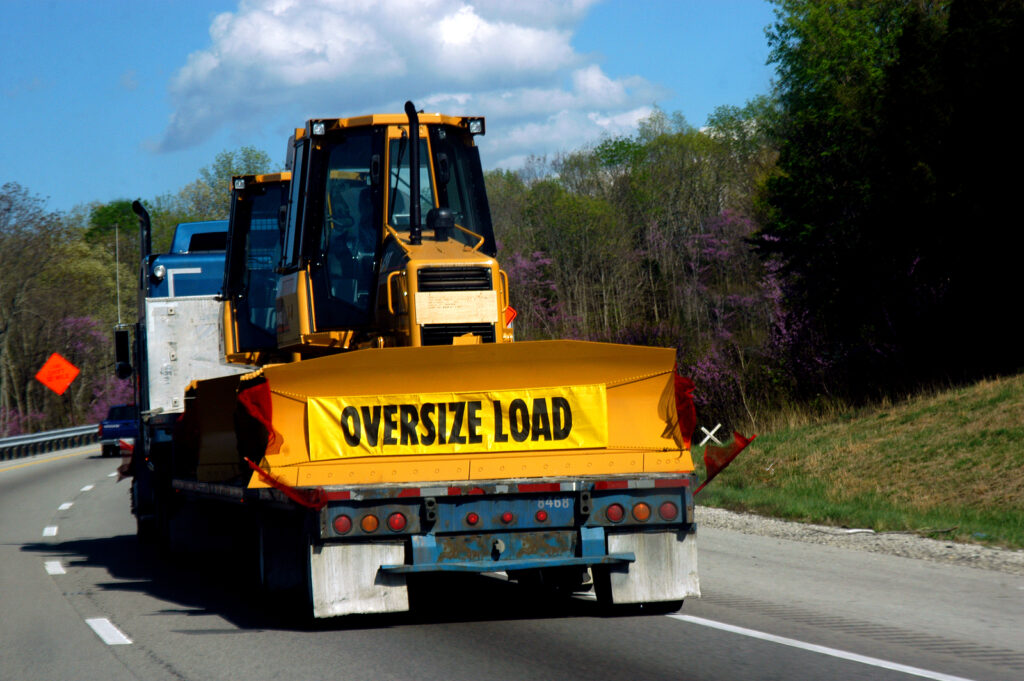What is an oversized load? Well, if you are preparing to haul anything that is very heavy and very large, this is a question you need to learn the answer to right away. Continue reading to learn what you need to know about hauling oversized loads, including the local and state laws, permits, rated trailers, standard trucking regulations, and more.

Regulations for Oversized and Overweight Loads
An oversized load is any cargo or freight of exceedingly large size and/or weight, therefore posing potential dangers and safety hazards during transportation. More specifically, local and state regulations define an oversized load as any cargo that exceeds the maximum legal width, height, and length of a freight. Such maximum freight dimensions vary from state to state, and even among local jurisdictions. It is important to check with your local county and state towing regulations to ensure that you are properly equipped to haul in oversized load from one destination to another.
Common examples of oversized and overweight loads include air crafts, shipping containers, construction equipment, farming equipment, mobile homes, oil rigs, heavy machinery, motor coaches, semi-trucks, and commodities of similar size and weight.
Factors to Consider When Towing Oversized Cargoes
If you are preparing to haul in oversized load, whether locally or across state lines, it is critical to consider various factors that can impact both the safety and practicality of your transport. In fact, here are the top factors to consider when towing oversized cargoes:
► Legal Load Dimensions – Although it can vary from state to state, and even among local jurisdictions, the generally accepted maximum legal load dimensions are 8 ½ feet wide and 8 ½ feet high. Any freight that is taller or wider than this is considered an oversized load in most municipalities.
► Oversized Load Permits – Most oversized loads require specialized permits and permissions, either from the state or the local municipality.
► Super Oversized Loads – Any loads that exceed 12 feet high and 12 feet wide typically require special permits, as well as an on-road escort or pilot car.
► Permitted Travel Times – Some states and local jurisdictions do not allow oversized load travel during certain times of the year, such as holidays and weekends, or even certain hours of the day. It is important to check with your local county and state towing regulations to ensure that you are permitted to haul your heavy freight at the time you wish to do so.
► Travel Logistics – Not only should you check that you are permitted to travel during the time you plan to, but it is also important to plan out your travel route ahead of time. With an oversized load, there are certain bridges and road passages that you will not be able to access. Planning ahead of time can help you work out the logistics of your route and ensure a streamlined journey.
Are you looking for a long distance heavy hauler for your oversized load in Indiana? Contact Zore’s Towing for heavy duty towing and machinery transportation services in Indianapolis, Indiana. We provide long distance towing services across state lines as well.
Related Posts:
How to Prepare a Car for a Long Distance Tow
Tips for Protecting Your Transmission When Towing Heavy
What You Need to Know About State Trailer Laws

